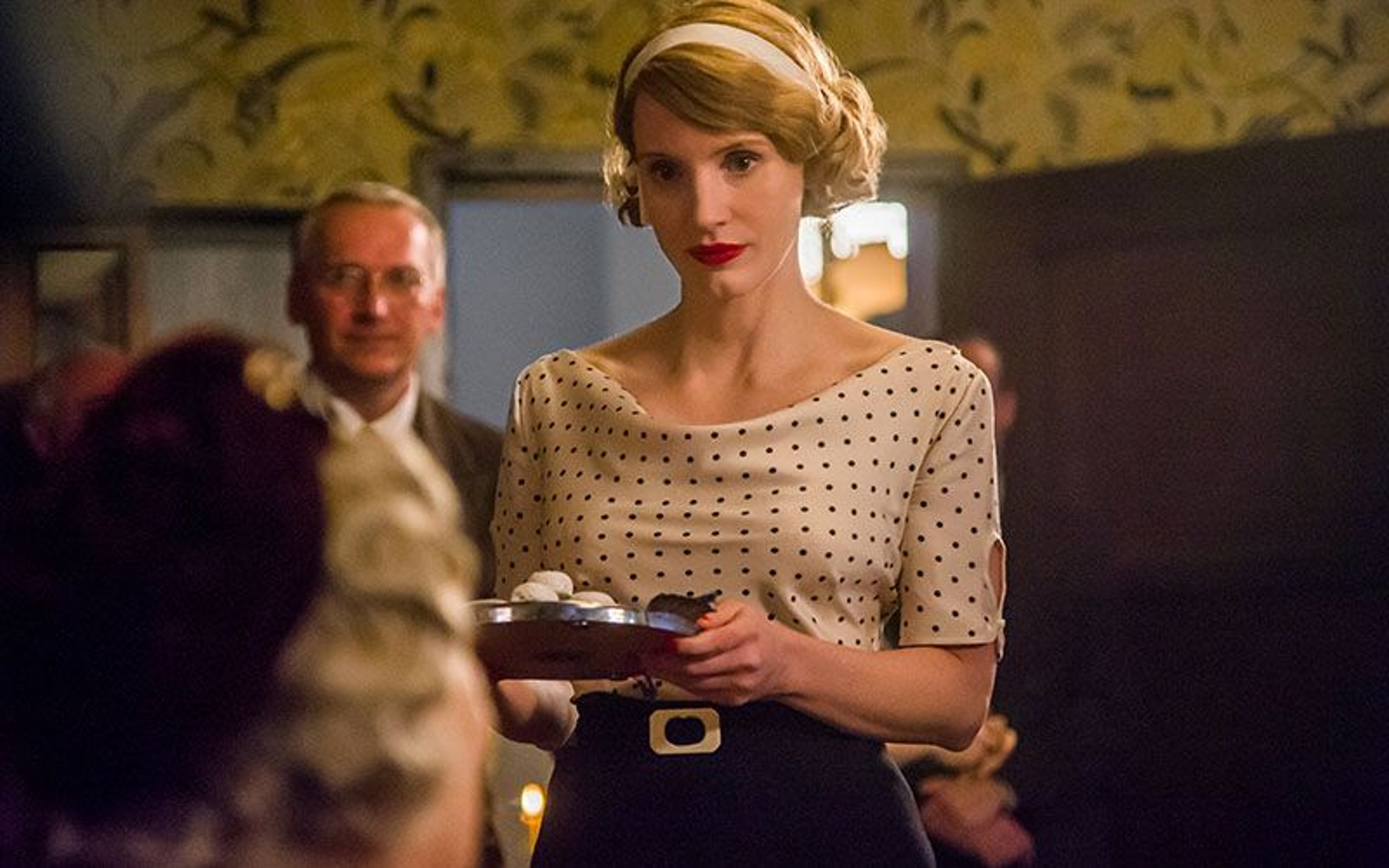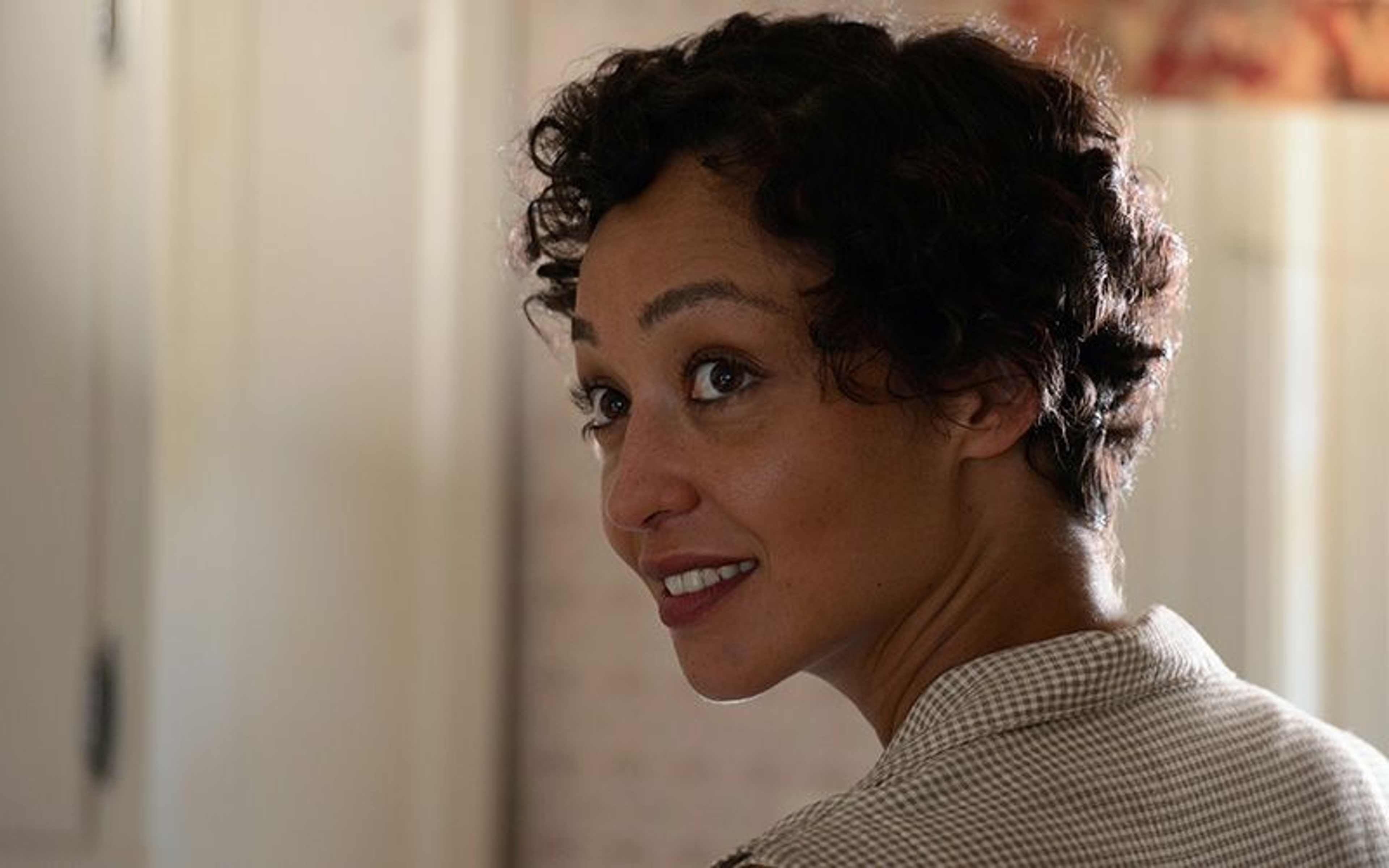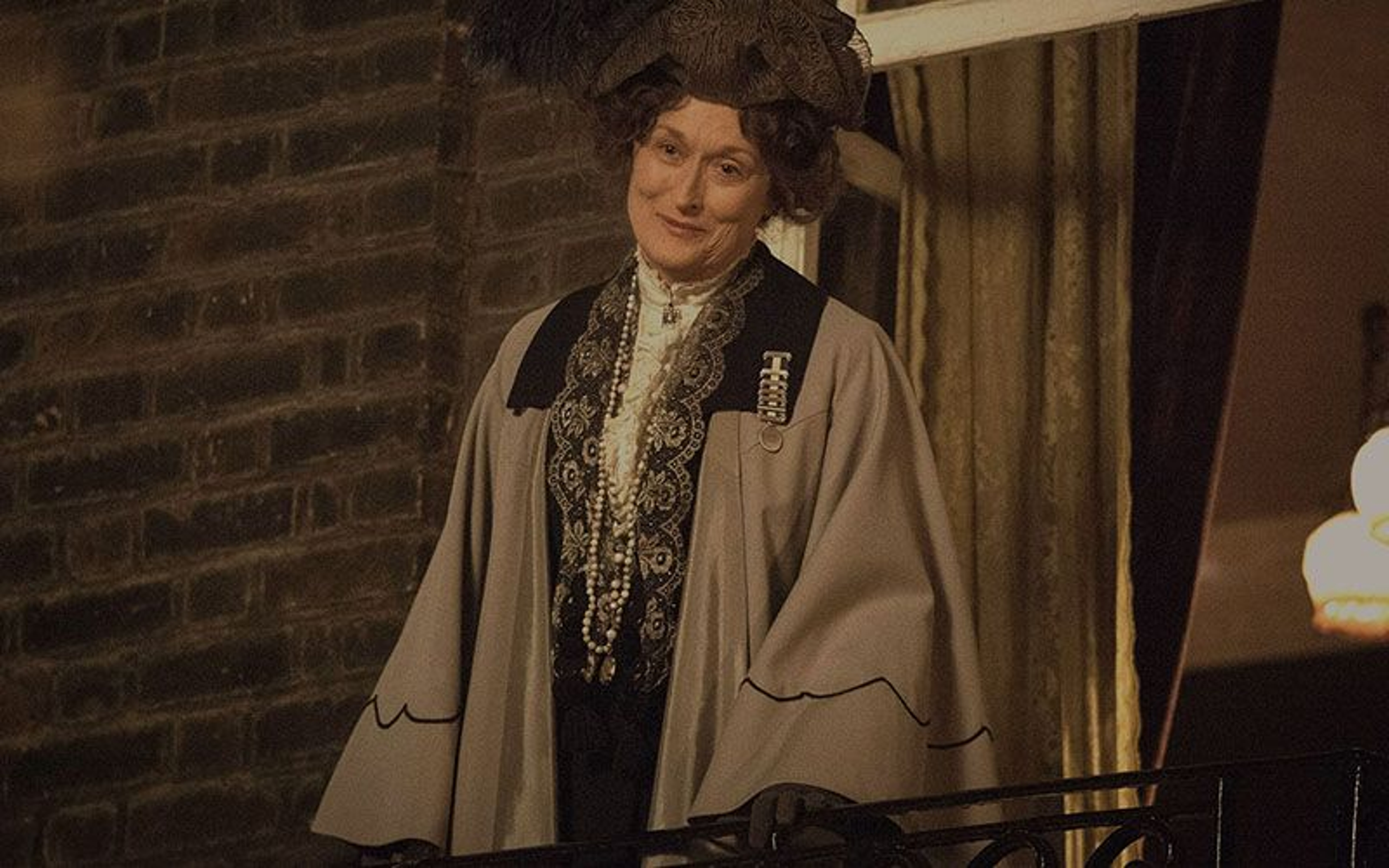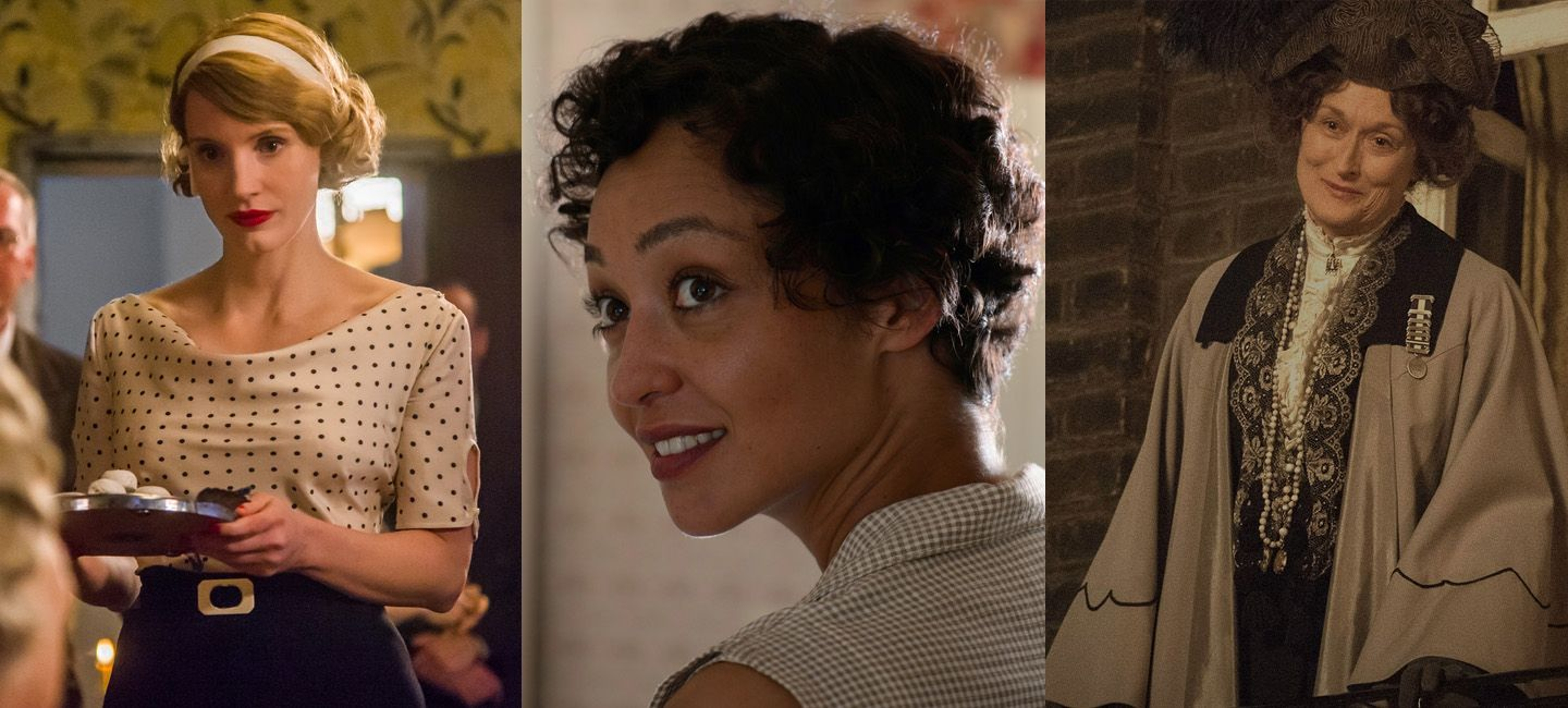This Wednesday, March 8, Focus Features is recognizing International Women’s Day with a salute to three real-life female heroes whose remarkable tales have motivated both storytellers and social change activists alike -- Antonina Żabińska, Mildred Loving, and Emmeline Pankhurst.
The theme of IWD 2017 is #BeBoldforChange, which asks all individuals to join forces to advance and unleash women's limitless potential around the world. Without a doubt, these three historic figures acted boldly in the face of great obstacles, both physical and systematic. May their stories inspire you to take action this month.

Jessica Chastain as Antonina Żabińska in The Zookeeper's Wife
Antonina Żabińska / The Zookeeper’s Wife
The Hero: On the eve of the Nazi occupation of Poland in 1939, Antonina Żabińska was a wife and mother who lived at the Warsaw Zoo, with her husband, Dr. Jan Żabiński, who was the director. Over the coming months, as the Nazis began sequestering the city's Jewish residents into the ghetto, the couple risked their lives to hide and shelter hundreds of persecuted Jews in their home's basement through underground tunnels in the zoo. The Żabińskis have been internationally recognized for their courage, but it is Antonina who is the inspiration behind director Niki Caro's The Zookeeper’s Wife, based on Diane Ackerman's best-selling novel and starring two-time Academy Award nominee Jessica Chastain.
Known For: Though her husband was an honored doctor and the official director of the Zoo, Antonina played a great role in running the park and was admired for having a way with the animals. As Ackerman explains "The more I learned about her sensibility and her love of animals and her incredible compassion and humanitarianism, the more I realized I just had to tell her story."
Bold Action: Despite the danger it placed on their own family, Jan and Antonina opened their home to many fleeing the Warsaw ghetto. Diane Miller Levin, producer of The Zookeeper’s Wife, says, "We were floored at how Antonina answered a call to action and accepted so many challenges: hiding people in abandoned animal cages and underground tunnels, sacrificing to feed the guests and bolstering their spirits with music – all the while putting her life and the lives of her children on the line."
Be Inspired: The Żabińskis' story is a timely reminder about the importance of neighbors helping neighbors, and standing up against immoral laws. The Refugee Council of the USA works with nine organizations to advocate for refugees in the U.S. and around the world for the protection, welcome, and rights. Learn more about their work at rcusa.org.
See Antonina’s story: The Zookeeper’s Wife opens in theaters on March 31st. Watch the trailer now.

Ruth Negga as Mildred Loving in Loving
Mildred Loving/Loving
The Hero: Mildred Loving (née Delores Jeter) was born of African-American and Native American descent in 1932 in Central Point, Virginia. In 1958, the simple act of marrying the man she loved, Richard Loving, who was white, set her life on a course that would end with their name on a landmark Supreme Court Case. Loving v Virginia (1967) overturned miscegenation laws, allowing citizens the right to marry no matter what their race.
Their tale is the inspiration behind the documentary, The Loving Story, and Jeff Nichols' recent award-winning film, Loving. Starring Academy Award nominee Ruth Negga as the quiet yet stubbornly determined Mildred, the film has helped bring international attention to these civil rights heroes.
Known For: Frustrated by not being able to raise her children in the state she called home, Mildred Loving penned a letter in 1963 to Attorney General Robert Kennedy, asking for help with their case. Kennedy referred the couple to the American Civil Liberties Union (ACLU), and two lawyers, Bernard S. Cohen and Philip J. Hirschkop, fought on behalf of the Lovings all the way up to the Supreme Court. In 1967, in the historic case Loving vs Virginia, the court agreed unanimously in favor of the Lovings, determining that a ban on interracial marriages was unconstitutional, a ruling which would later serve as the precedent for striking down the gay marriage ban in 2015.
Bold Action: Though Mildred was soft spoken and considered shy, that doesn’t mean she wasn’t strong. As Ruth Negga, who received an Academy Award nomination for her portrayal of Mildred, said of her quiet demeanor, "don't mistake that for a lack of confidence. Because somewhere in that body, both physically and mentally, there's a real steel thread of certainty about who they are and their confidence in themselves.”
Be Inspired: ACLU continues to fight for human rights for all peoples in the United States. Donate to support its efforts today.
See Mildred’s story: Watch Loving, now on iTunes.
Ruth Negga Featurette

Meryl Streep as Emmeline Pankhurst in Suffragette
Emmeline Pankurst/Suffragette
The Hero: Though she’s only seen briefly in Sarah Gavron’s 2015 film Suffragette, Emmeline Pankhurst (played by Meryl Streep) leads the action in this historic story about the British Suffragette protests in the early 1900s. Appearing in a balcony window, the real-life figure delivers an impassioned speech that fuels the film's central character, Maud Watts (Carey Mulligan), into action. A champion of women's rights for over 40 years, Pankhurst finally achieved her dream of voting equality in July 1928 -- just a few weeks after her death.
Known For: In 1903, Pankhurst founded the Women's Social and Political Union, which deployed militant tactics to raise attention towards women's suffrage. Though her tactics were (and remain) controversial, in many ways she is the godmother of not only modern feminism but many social change movements. As Pankhurst herself so passionately said, "Women are very slow to rouse, but once they are aroused, once they are determined, nothing on earth and nothing in heaven will make women give way; it is impossible."
Bold Action: Pankhurst was fearless, being jailed many times for her spirited actions. She saw imprisonment as a means to publicize the urgency of women's suffrage; in June 1909 she struck a police officer twice in the face to ensure she would be arrested. During her trial on October 21, 1908 she told the court: "We are here not because we are law-breakers; we are here in our efforts to become law-makers."
Be Inspired: Despite the legacy of Pankhurst and many other dedicated activists through the decades, equal rights for women is still not in given in many nations around the globe. Help continue the progress by donating to National Organization of Women.
See Emmeline's story: Suffragette, which tells the story of Pankhurst and her fellow revolutionaries, is available on iTunes.
"Rebellion" Clip from Suffragette
